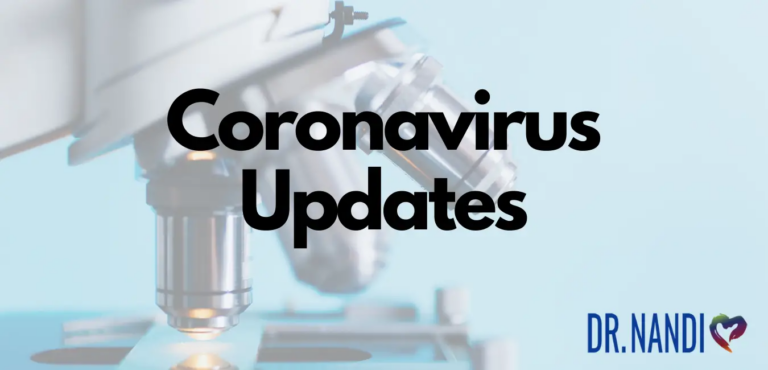If you aren’t familiar with the chemical glyphosate, it most widely used herbicide in the world, and it is arguably the most concerning toxin in Monsanto’s popular herbicide, RoundUp. While its effectiveness in killing weeds is undisputed, its safety for human health and the environment has been a subject of much debate and controversy.
Several studies have linked glyphosate to cancer and other health issues, particularly non-Hodgkin lymphoma. This leads to a growing concern among consumers about its use in our food system.
Despite this, Monsanto has continued to defend the safety of its product, leading to a global debate about glyphosate’s safety and the future of agriculture.
Study Found Weed Killer in Your Beer and Wine
It’s not all fun and games when it comes to glyphosate in beer and wine. Consumer advocacy group CALPIRG tested 20 of our favorite drinks and found that only one, Peak Beer, was free of the pesky herbicide. Even organic products, which shouldn’t contain glyphosate since it’s not allowed in organic farming, were not immune to its presence.
While it’s true that organic products had lower levels of glyphosate compared to conventional brands like Coors and Miller Lite, which showed levels above 25 ppb, the fact that any glyphosate was found in organic products is still a cause for concern. So, the next time you’re cracking open a cold one or enjoying a nice glass of wine, it’s worth keeping in mind that even the most seemingly pure and natural products can still contain traces of glyphosate.
Glyphosate Found in Germany’s 14 Most Popular Beers
In February of an undisclosed year, the German beer industry faced a troubling accusation from the Munich Environmental Institute (MEI). The organization claimed to have discovered traces of glyphosate, a controversial herbicide, in 14 of Germany’s most popular beers. This revelation contradicted the industry’s reputation for “pure” brewing, causing concerns about the safety and quality of the beloved beverage.
According to MEI’s report, all 14 beer brands tested exceeded the 0.1 microgram limit allowed in drinking water, indicating the prevalence of glyphosate in agricultural practices. Despite this alarming news, the German Brewer’s Association dismissed the findings and hesitated to change existing legislation. They argued that glyphosate is a common substance found virtually everywhere after years of agricultural use. However, this kind of attitude poses a significant risk to the safety and cleanliness of our food and drinks. It’s crucial to prioritize public health and safety by taking active steps to reduce the levels of glyphosate and other harmful substances in food and drink products.
Arsenic Found in Inexpensive Wine Brands
Though the FDA considers the amounts of glyphosate found in some organic products to be safe, it can still be concerning to think that your Certified Organic product may be contaminated without your knowledge. On the other hand, some inexpensive brands of wine have been found to contain illegal and dangerously high levels of poisonous inorganic arsenic. Inorganic arsenic is over 500 times more toxic than organic arsenic, and it is often added to wine to enhance its flavor, scent, and hue. A class-action lawsuit was filed in California regarding this issue. Now, before you head out to the liquor store, remember to stick to Peak Beer and avoid these known offenders listed with their corresponding glyphosate concentration:
Wine:
Sutter Home Merlot (4-pack, 187 mL bottles, 2018) – 51.4 ppb
Beringer Founders Estates Moscato (750 mL bottles, 2018) – 42.6 ppb
Barefoot Cabernet Sauvignon (4-pack, 187 mL bottles, 2018) – 36.3 ppb
Inkarri Malbec: Certified Organic (750 mL bottles 2016) – 5.3 ppb
Frey Organic Natural Wine (USDA Certified Organic, 750 mL bottles 2017) – 4.8 ppb
Beer
Coors Light (6-pack, 500 mL cans, 2018) – 31.1 ppb
Tsingtao Beer (4-pack, 640 mL bottles, 2017) – 49.7 ppb
Miller Lite (6-pack, 375 mL bottles, 2018) – 29.8 ppb
Budweiser (6-pack, 440 mL bottles, 2018) – 27.0 ppb
Corona Extra (6-pack, 355 mL bottles, 2017) – 25.1 ppb
Heineken (6-pack, 355 mL bottles, 2018) – 20.9 ppb
Guinness Draught (4-pack, 440 mL bottles, 2018) – 20.3 ppb
Stella Artois (6-pack, 355 mL bottles, 2017) – 18.7 ppb
Stella Artois Cidre (6-pack, 355 mL bottles, 2018) – 9.1 ppb
Ace Perry Hard Cider (6-pack, 650 mL bottles, 2018) – 14.5 ppb
New Belgium Fat Tire Amber Ale (6-pack, 350 mL bottles, 2018) – 11.2 ppb
Sam Adams New England IPA (4-pack, 475 mL cans, 2018) – 11.0 ppb
Sierra Nevada Pale Ale (6-pack, 350 mL cans, 2018) – 11.8 ppb
Samuel Smith’s Organic Lager (550 mL bottle, 2017) – 5.7 ppb

The Laws Regarding Glyphosate and What’s Next
In Mexico, starting from January 2024, the government has officially issued a decree prohibiting the use of glyphosate herbicide. However, the decision poses a significant challenge. In a blog post titled “Everything in Agriculture is a Trade-Off,” scientist Andrew Kniss emphasized the potential consequences of disregarding weeds. He states that failing to address them could lead to a significant decrease in global food production, estimated at 20 to 40 percent.
While we acknowledge how effective RoundUp is as an agricultural tool, NC State Extension Publications suggested some options for weed control in landscapes without relying on glyphosate. The author discusses various non-chemical methods for controlling broadleaf weeds, such as cultural practices, mechanical methods, and biological control. Cultural practices include crop rotation, proper irrigation, and soil management techniques that promote weed suppression and enhance crop competitiveness. Mechanical methods involve the physical removal of weeds through hand weeding, hoeing, or cultivation. Biological control involves introducing natural predators, parasites, or pathogens that target specific weed species.
The article emphasizes the importance of an integrated weed management approach, which combines multiple strategies to effectively control broadleaf weeds. Integrated weed management aims to minimize reliance on herbicides and promote long-term weed suppression while maintaining crop productivity.
The presence of potentially harmful substances in popular drinks like beer and wine is a growing concern. Glyphosate, a controversial herbicide, has been found in many popular beer and wine brands, including organic products. In addition, some inexpensive wine brands have been found to contain illegally high levels of inorganic arsenic, a highly toxic substance. These findings highlight the need for greater transparency and regulation in the food and beverage industry to ensure the safety and health of consumers. The hazardous nature of glyphosate emphasizes the importance of shifting away from toxic, chemical-dependent farming methods and towards more sustainable, regenerative, and organic farming practices. Again, for now, keep in mind these wines cited explicitly in the lawsuit life is too short to drink bad wine.

How to Aid Normal Detoxification Processes
Since stuff like glyphosate and arsenic doesn’t leave your body quickly, it’s important to keep your detox organs healthy.
Here’s a straightforward step-by-step guide:
- Drink up! A lot of clean, filtered water helps flush out toxins.
- Eat more fiber. It aids in getting rid of unwanted substances from your body.
- Add a liver-supporting supplement to your routine. For instance my Liver Support supplement is packed with nutrients that are great for detoxification.
- Chow down on probiotic foods and supplements. They’ll help balance out your gut, which can get messed up by glyphosate and arsenic.
- Make room for sulfur-rich veggies in your meals, like Brussels sprouts, broccoli, and cauliflower. They’re packed with nutrients good for detoxification.
- Sweat it out. Regular sauna sessions for heavy sweating, ideally 1-5 times a week, help you get rid of toxins.
- Choose organic, GMO-free foods. This helps limit your exposure to harmful stuff like glyphosate.
- As for arsenic, eating a diet low in seafood and rice can help reduce your exposure, as these foods can sometimes contain higher levels of arsenic. Foods high in selenium, such as Brazil nuts, can also aid in the detoxification of arsenic.
Remember to always consult with a health professional before making significant changes to your diet or lifestyle.

SOURCES:
Alcántara-de la Cruz R;Cruz-Hipolito HE;Domínguez-Valenzuela JA;De Prado R; (n.d.). Glyphosate ban in Mexico: Potential impacts on agriculture and weed management. Pest management science. https://pubmed.ncbi.nlm.nih.gov/33723895/
Copley, C. (2016, February 25). German beer purity in question after environment group finds weed-killer traces. Reuters. https://www.reuters.com/article/us-germany-beer/german-beer-purity-in-question-after-environment-group-finds-weed-killer-traces-idUSKCN0VY222
Glyphosate residue is found in 95% of tested beers and wines. Beyond Pesticides Daily News Blog. (2019, February 27). https://beyondpesticides.org/dailynewsblog/2019/02/glyphosate-residue-found-in-95-of-tested-beers-and-wines/
Splitter, J. (2019, March 1). There’s no need to panic over Weedkiller in beer and wine. Forbes. https://www.forbes.com/sites/jennysplitter/2019/02/28/no-panic-glyphosate-beer/?sh=43c06f2d49be
Sustainable Pulse. (2016, February 25). The German beer industry is in shock over glyphosate contamination. Sustainable Pulse. https://sustainablepulse.com/2016/02/25/german-beer-industry-in-shock-over-probable-carcinogen-glyphosate-contamination/#.ZGJPBuxBzAN
Toole, M. (2019, July 10). Monsanto’s cancer-causing herbicide detected in organic foods. Healthy Holistic Living. https://www.healthy-holistic-living.com/monsantos-cancer-causing-herbicide-detected-organic-foods/
Wu, S. (2015, March 21). Full list: Wines named in a lawsuit over high levels of arsenic. Cumming, GA Patch. https://patch.com/georgia/cumming/which-california-wines-reportedly-contain-poisonous-arsenic-0












 Subscribe to Ask Dr. Nandi YouTube Channel
Subscribe to Ask Dr. Nandi YouTube Channel









